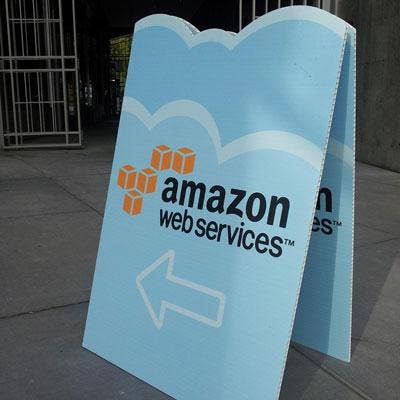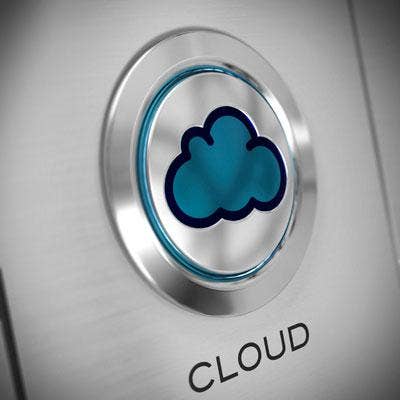Enterprise In Flight: Who's Leading The Public, Private And Hosted Cloud Charge

Another Window Into The Cloud Market
451 Research recently completed a global survey of 1,500 IT professionals, asking them about the public cloud providers and private cloud technologies they use to power their enterprise IT environments.
In a format reminiscent of Gartner's Magic Quadrant, 451 Research's Vendor Window breaks up vendors into quadrants, on one axis rating them on what they promise customers, and on the other what they actually end up delivering. The assessment is based on both overall enterprise adoption rates and customer ratings of vendor performance.
Without much surprise, the survey revealed Amazon Web Services and VMware are leading their respective markets in IaaS and on-premise cloud platforms. But the report also noted the two leaders are feeling pressure from Microsoft Azure and OpenStack.
And, according to those polled, Rackspace has established a solid lead in the hosted private cloud market.

Amazon Web Services
More than half the enterprise IaaS customers polled by 451 Research use the industry's dominant public cloud. In addition to the nearly 57 percent AWS adoption of respondents, 35 percent of the total said AWS is their most important cloud provider.
AWS received some of the highest ratings overall for its ability to fulfill customer needs, particularly in terms of experience and technical innovation, putting it squarely in the "high promise, high fulfillment" zone.

Microsoft Azure
Not only has Microsoft Azure been adopted by almost 43 percent of the enterprises surveyed by 451, but Microsoft is listed most often as the vendor that enterprises will likely evaluate for their next IaaS supplier.
Twenty percent said Azure is their most important IaaS provider. Despite the market penetration, Azure rates lower than some competitors on the metrics of experience and support for open-source software, landing Microsoft in the "low promise, low fulfillment" quadrant.

Rackspace
The number of respondents using Rackspace as an IaaS provider -- 17.4 percent of all polled -- came out higher than the company's more generally accepted share of the overall market.
Respondents put Rackspace on par with AWS when considering ability to fulfill customer IaaS needs. They also ranked Rackspace the top IaaS provider in the category of guaranteed SLAs, consistent with the company's managed cloud strategy.

IaaS Shakeup
"While the 2015 Vendor Window for IaaS shows Amazon Web Services as the clear leader based on multiple metrics, Microsoft Azure, Rackspace and VMware’s vCloud Air are becoming competitive challengers," said Michelle Bailey, senior vice president of digital infrastructure and data strategy at 451 Research.
"As more mainstream customers move business-critical workloads to cloud environments, the decision criteria for evaluating potential vendors change relative to early cloud adopters, and in turn so do the vendors under consideration," Bailey said.

On-Premise
Enterprise IT organizations are ramping investment in their on-premise clouds, according to 451 Research. On-premise for many enterprises remains the default cloud environment.
"Cloud suppliers offering SaaS, IaaS and hosted private cloud solutions are increasingly competing and cooperating with on-premises private cloud environments," the report noted.

VMware And Cisco
Without much surprise, VMware dominates the private cloud with its ESX and vCloud offerings. Some 70 percent of respondents operate private clouds powered by the virtualization leader.
VMware and its partner solution, Cisco UCS, received the highest ratings in terms of promise and fulfillment, particularly on the attributes of company brand and platform reliability.
Cisco's UCS collaboration with VMware was used in the data centers of 35 percent of those polled.

Open-Source Challengers
While VMware still rules the roost, and has excellent ratings to boot, the vendor is facing a serious challenge from the open-source flank.
More than 70 percent of VMware customers have also deployed an alternative cloud platform such as OpenStack, CloudStack or Microsoft Cloud OS, according to the study.
"Open-source-based solutions continue to receive investment from major hardware and software vendors such as HP, IBM, Red Hat and Citrix, VMware’s dominance is under pressure, especially for mobile and cloud-native applications," noted Dr. Scott Ottaway, 451 Research's vice president of cloud services and data research.
CloudStack, the IaaS technology donated to the open-source community by Citrix, ran in 30 percent of the private clouds used by respondents. OpenStack (primarily distributed by Red Hat, OpenStack.org and HP Helion) was used by 24 percent.

Microsoft Cloud OS
Microsoft's cloud virtualization technologies such as Hyper-V and System Center were used by one-quarter of the survey's respondents.

Hosted Private Cloud
Thirty-four percent of all organizations surveyed had adopted a hosted private cloud, according to 451 Research.
Offering enterprises hosted private cloud services was an arena Rackspace staked out, and it looks like the effort is paying off with 20 percent of the specialized and fragmented market, according to the survey.
Several telecoms, including Verizon, CenturyLink and AT&T, and VMware's vCloud Air also play in this space.
But the market remains so fragmented that if you aggregate providers with less than 3 percent total share of respondents, together they offer services to more than half of the enterprises surveyed that use a hosted cloud.

Mission-Critical Apps
Mission-critical applications are more likely to be deployed on a hosted private cloud than on a multitenant IaaS platform, 451 Research found.
That suggests, according to the research, a long-term growth opportunity for hosted private cloud offerings as mainstream buyers prioritize security, customization and performance over low cost.

Increasing The Spend
The current IT climate seems to bode well for all cloud vendors with established business.
About 30 percent of the organizations polled said they expect to increase their IT spend in the next 90 days. The majority of them expect to increase that spend with their existing cloud platform providers, "suggesting continued cloud investment and substantial opportunity for growth for all the named vendors in this space," the 451 Research report noted.